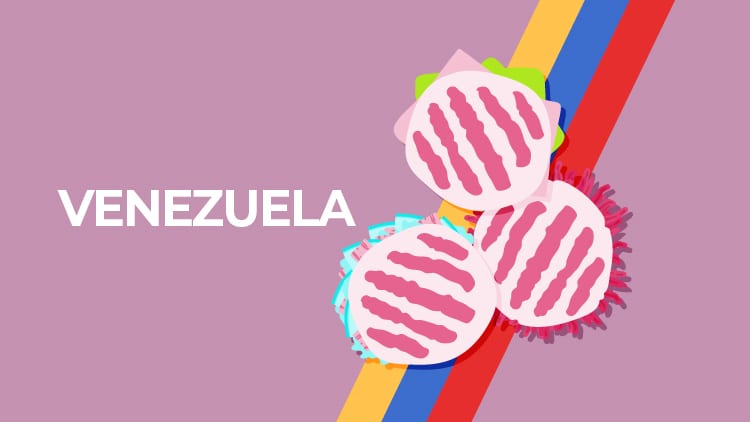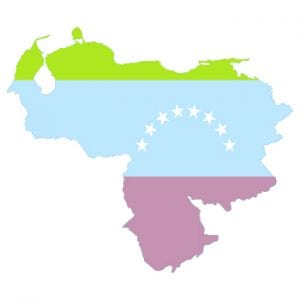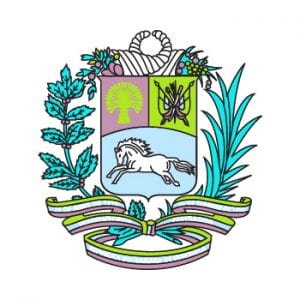
What is the National Language In Venezuela?
The National Language of Venezuela
The history of South America can tell us a lot about different human cultures and civilizations. The continent is home to many historical sites that can show us a glimpse of what life used to be in ancient times. Even today, South America is a culturally and linguistically diverse continent. However, colonialism has affected its people in a number of different ways. This is why Venezuela’s national language today is Spanish and not one of the indigenous tongues that are spoken in the country. The situation is the same in other countries of the continent, including Colombia, Peru, Argentina, Brazil, Ecuador, and Chile. However, indigenous people continue to speak their native tongues with pride. South American countries have recognized indigenous languages in the constitution, so they can be preserved.
Venezuela:
Venezuela is a country in South America that shares its borders with Colombia, Brazil, Trinidad and Tobago, Guyana, the Caribbean Sea, and the Atlantic Ocean. It is located on the northern coast of the continent. The country had a population of 28 million in 2019. It was colonized by Spain in 1522 and remained under Spanish control until the beginning of the 19th century when it declared independence. At that time, it was a part of Colombia. In 1830, Venezuela became a sovereign country. The history of the country after getting independence does not paint a happy picture. The country was ruled by military dictators until the mid-20th century. But even after that, things did not get better. The people of the country suffered because of economic instability. Even today, the people of Venezuela are facing a political crisis that began after the 2013 presidential elections.
Human Rights
The human rights situation in Venezuela is getting worse day by day. Extrajudicial killings and attacks on human rights activists are becoming common. Political instability and poverty can be blamed for the human rights crisis. Christianity is the religion of more than eighty percent of Venezuela’s population. More than fifty percent of the population is of multiracial origins. The white population is the second biggest ethnic group in the country. Caracas is the largest and the capital city. The crime rate in Caracas is very high. A significant percentage of the population lives in Caracas. Venezuela is known for being the most urbanized out of all of the countries of Latin America. More than seventy percent of the population lives less than a hundred kilometers from the coastline.
Venezuela Leading Exporters
Venezuela is one of the leading exporters of oil today and a founding member of OPEC. It is also known all over the globe as the exporter of cocoa and coffee. The country also exports steel, aluminum, and cement. The country also has natural resources of natural gas, gold, and other minerals. But the corruption of its political leaders caused an economic collapse even after the discovery of oil. This is why unemployment is on the rise in Venezuela.


What Language is Spoken in Venezuela?
The name Latin America refers to the countries in the Americas that speak a Latin-based language. The majority of countries in Latin America were colonized by Spain. The linguistic influence of Spain can still be observed in South America, where the majority of the population speaks Spanish. The Spanish language is not only used by the people but also by the governments of these countries. It is the official language in most of the countries of Latin America. But why is there a Venezuelan national language and which language is that?
Venezuela Unique Cultures
Located in northern South America, the country of Venezuela has always been home to indigenous people. They have their own unique cultures and languages. But after the colonization by Spain, the native language of the country changed. Indigenous languages are still spoken by different communities, but all the branches of government use Spanish. In major cities, English is also quite popular.
-
Venezuelan Spanish:
The colonists that introduced the Spanish to the people of Venezuela came from Basque Country, Andalusia, Galicia, and the Canary Islands. The influence of the Spanish of Canary Islands is the most prominent on Venezuelan Spanish. The two accents have become quite similar. An outsider may find it difficult to differentiate between them. Italian and Portuguese immigrants also influenced the native language. German settlers also played a part in changing the Spanish of this region. However, Spanish has many dialects in Venezuela. The Zulian dialect is spoken in the north-west part of the country, especially in Zulia. The Caracas dialect is spoken in the capital city.
Romance Language
Spanish is a Romance language that originated from Latin in the Castile region of the Iberian Peninsula. It is a direct descendant of Vulgar Latin. It has many different varieties today. The variety spoken in South America has a lot of non-Romance words. In Venezuela, these words come from indigenous languages and from the African slaves who were brought over to the region by the Spaniards.
Spanish in European Countries
European countries, including Spain, Italy, Germany, Portugal, and France, changed the world through colonization. It wasn’t just the culture that was influenced, but even the governments changed. The rule of Spain over the Americas lasted for a long time, during which nearly ninety-nine percent of the indigenous tongues went out of use. Europe and its languages became the most influential forces in Mexico, Colombia, Peru, Venezuela, Puerto Rico, Bolivia, Argentina, Guatemala, Nicaragua, Honduras, Panama, etc. Even the beliefs of people changed because of European influences. Read in our other blog post about the History of the Spanish Language.
-
Indigenous Languages:
The indigenous population of Venezuela speaks a number of different languages. But what is the Venezuela national language? Many of them are either threatened or endangered. The Caribbean family has the highest number of members. But even a couple of Caribbean languages have gone extinct. Languages similar to the Caribbean family were spoken in the past on the East Venezuelan coast. More than 30 indigenous tongues are recognized in the constitution. Out of them, the most spoken is Wayuu. It is also spoken in Colombia and has two main dialects. The dialects of Wayuu are mutually intelligible. Warao and Pemon are other popular indigenous tongues. However, both Warao and Pemon are spoken by less than one percent of the Venezuelan people. Pemon is spoken in the southeast part of the country. It is also spoken in the Brazilian state of Roraima.
Warao Language
Warao is spoken in Suriname and Guyana, along with Venezuela. In Venezuela, it is primarily spoken in the Delta of Orinoco area and some regions of Cercanas. It has nearly 33,000 native speakers. Warao is unclassified, which means linguists cannot say which family it belongs to. Carib dialects also have thousands of speakers. The Carib people were some of the primary residents of Venezuela. Other unique indigenous languages are Panare, Yanomami, Piaroa, Guahibo, and Manduhuaca. The indigenous peoples have their own terms for their vernaculars. So, be respectful when talking about their cultures and languages.
Linguists are still studying the indigenous languages of the Americas. There is a debate about the existence of certain old tongues that have gone extinct now. But only time will tell whether a series of studies will be enough to lead us to the truth or not.
-
Foreign Languages Spoken in Venezuela:
Many foreign languages are spoken and studied in Venezuela. Out of all of them, the most popular is Chinese. Portuguese, Italian, Arabic, German, and English are the other popular foreign vernaculars. English is the language of academics and professionals. It is also becoming popular in the business world. It is a compulsory subject in secondary school. Portuguese is particularly popular in cities that are located close to the Brazil border. Italian language courses are very popular in schools and colleges. Many words of Italian have made it into the everyday vernacular of the people, which has made Italian language teaching even more important. In the second half of the twentieth century, many Italians moved from Europe to Venezuela, which made their language popular here. Some students also study Greek and Latin in high schools.
During the twentieth century, Venezuela, along with the rest of the continent, received immigrants from Europe. This increased the popularity of Europe’s tongues in the country.


The Struggles and Future of Venezuela:
South America’s history is very complex. In some territories, the democratic governments used the production sources to make money, and the nations suffered. In other countries, military dictatorship caused inflation and affected the inhabitants negatively. Whenever democracy helped people and gave women their rights, it was taken away, either by the intervention of the military or foreign powers like the U.S. The successor of every dictator wanted more control.
Venezuelan nations
The Venezuelan nations have had to suffer from the same fate. Everyone in the position of power, whether they are in a town or villages, only pursues personal goals. No one cares about the students and the women, the elderly, and the children. When the demand for food is not met, it leaves no choice for people but to get on the roads and fight for their institutions and their country.
Infrastructure
Western nations destroyed the infrastructure of countries like Uruguay, Paraguay, Mexico, Cuba, Colombia, etc. Venezuela is no different. The administration does not care about Venezuelan schools or the environment. They don’t care if millions of women get mistreated in the hospitals. In such a situation, it is not easy to be hopeful for the future. Even the elite cannot look forward to the future with high hopes.
Visiting Venezuela, What Should You Know?
If you plan to visit Venezuela, it is better to download a language app on your phone unless you know Spanish. Whether you will be visiting the Caribbean coast or any other part of the country, the language barrier like the Venezuela national language can be a problem for you. A trip to Venezuela will be useless without visiting its national parks. Canaima National Park extends to the border with Brazil and Guyana. Morrocoy National Park and Mochima National Park are also worth visiting. If you love the ocean, then visiting the coasts is also a must when you are in Venezuela. Taking a day off to rest on the beach can never be a wrong idea.
Habitats of Venezuela
If you want to see biodiverse habitats, then you can go anywhere from the Amazon basin to the Orinoco river delta. More than fifty percent of Venezuela’s mammals can be found in the Amazon rainforests south of Orinoco. It is better to avoid Caracas, the capital city, as it is known for its high homicide rates. Caracas can be considered one of the most dangerous big cities in the world.
It is better to read about the Bolivarian revolution of the 1990s if you plan on chatting with the residents about the history of Venezuela. The country has had bad luck with presidents. But after the presidential elections of 1998, the revolution began. It was named after Simon Bolivar, a South American hero. Due to the revolution, Venezuela saw economic growth. It was saved from corrupt presidents for more than a decade.
Charms of Venezuela
Each location in Venezuela has its own charms. You can celebrate festivals with the locals.Also you can check out their mastery of textiles. Try the special rice dishes of the Venezuelan lands. If you want to study at a Venezuelan university, you can also take part in events and go to parties. But it is important not to ignore the customs of the country. Don’t depend on online articles for ideas. Figure things out for yourself, too, once you enter Venezuela. Don’t expect to become an expert on Venezuelan culture in minutes and know about Venezuela’s national language. You cannot develop a good relationship with the locals by being hasty. So, take your time, and you will get to learn all the good things about this South American country.


